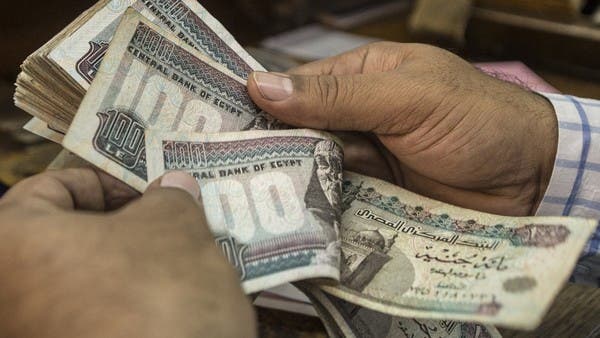Despite the recent setbacks The Egyptian pound against the dollarHowever, the largest banks in the world still see the exchange rate as exaggerated, which leaves few options in light of the plan of the most populous Arab country to obtain a new program from the International Monetary Fund.
Egypt has tended to adopt a more flexible exchange rate, as the government is looking to obtain a new loan from the fund.
In the view of Deutsche Bank and Goldman Sachs, the Egyptian currency is overvalued by 10%, as measured by the real effective exchange rate, while Citigroup has an undervalue of 5%, according to Bloomberg. On it, “Al Arabiya.net”.
The urgency of the $400 billion economy is growing despite the currency’s depreciation of more than 15% since last March.
According to Bloomberg analysts, the pound needs to fall by about 23% to help the economy adjust and reduce the financing gap in Egypt.
Derivatives traders are also trading the currency at lower levels, even after the Egyptian currency posted losses for about 11 weeks in the offshore market, its worst streak in nearly a decade. In the non-deliverable futures market, the 3-month contract was trading at about 21 pounds per dollar on Tuesday, 9% weaker than the spot rate offshore.
monetary fund
“Policy makers may be concerned about the side effects of currency devaluation, such as higher inflation which is already in the double digits, and the risk of social unrest,” said Ziad Daoud, chief emerging markets economist at Bloomberg. “Egypt could end up weakening its currency, but with less what the economy needs.
Egypt turned to the International Monetary Fund for fresh assistance in March, receiving pledges of more than $22 billion in deposits and investments from Saudi Arabia, the United Arab Emirates and Qatar. Reflecting the increasing pressure on Egypt’s finances, the central bank’s net international reserves fell to $33.14 billion in July, the lowest level since June 2017.
Speculation is that the International Monetary Fund will demand more flexibility in the pound as part of the terms linked to a new package that pushed the currency toward a record low it reached in 2016.
“Investors have continued to price in further devaluations,” Citigroup analysts said in a report, in light of the decline in net foreign assets.
local bonds
On the other hand, the country’s domestic bonds have lost about 2% this month, making them the worst performers in emerging markets, according to Bloomberg Indexes. Also, foreign demand has not returned yet.
“Raising interest rates will contribute to renewed investor interest in domestic markets and could ease some exchange rate pressures,” Deutsche Bank Research’s Anna Friedman and Christian Witowska said in a report. And they expected more weakness in the currency, but through a gradual depreciation of the currency rather than a sharp decline.
–

